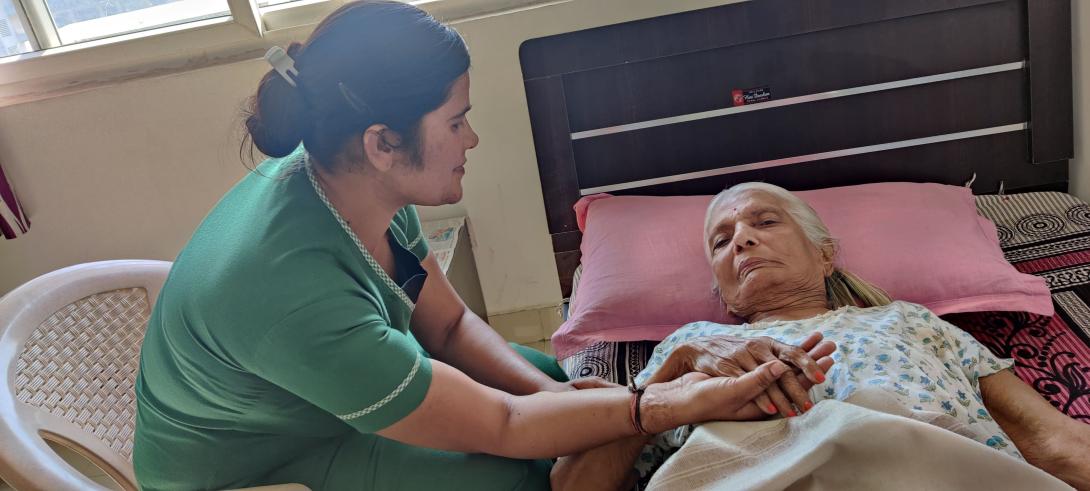
Coming to the decision to place a loved one in assisted living is never simple. It entails emotional, practical, and frequently monetary factors. But maintaining the health, safety, and overall quality of life for aging relatives sometimes requires the realization that independent living is no longer in their best interest. Identifying the signs ahead of time can allow families to transition to assisted living in a seamless and empathetic way. The following are ten signs that may suggest that it's time to begin the discussion.
1. Increasing Difficulty with Daily Activities
Difficulty with activities of daily living (ADLs) such as bathing, dressing, grooming, and meal preparation is one of the most obvious indications that your loved one might require additional assistance. If you observe dirty hair, messy clothes, or rotten food in the refrigerator, it may indicate they're struggling to handle simple self-care and nutrition.
2. Frequent Falls or Mobility Issues
Falls are one of the most common causes of injury in older adults. If your loved one has just fallen or is becoming more unstable on their feet, it's time to evaluate their living environment. Assisted living facilities are mobility-focused, providing safer settings, handrails, and staff support when necessary.
3. Medication Mismanagement
It is difficult for older adults to keep track of several medications, particularly if they have memory problems. Missing doses, taking the wrong medication, or taking too much can cause severe health complications. Assisted living facilities usually offer medication management services to make sure residents take the right medications at the appropriate times.
4. Isolation and Loneliness
Social isolation is a quiet danger to the health of seniors. If your loved one doesn't leave the house often, appears withdrawn, or has lost interest in hobbies and social activities, they might be lonely or depressed. Assisted living provides daily social interaction, group activities, and opportunities for meaningful engagement, all of which lead to better emotional well-being.
5. Noticeable Memory Loss or Confusion
Some forgetfulness is natural in the aging process, but if your loved one starts forgetting vital information like names, appointments, or how to do things he or she has always done, this is a sign of cognitive decline. Confusion of time or place, repetitive questioning, or becoming lost in familiar places are warning signs that should not be overlooked.
6. Poor Hygiene and Housekeeping
A previously neat house that's now messy, dirty, or in disrepair can be a sign that your loved one is having trouble keeping up. Dirty laundry, mail piling up, unpaid bills, and unwanted critters are all signs that they might no longer be able to keep up their living space. Assisted living communities offer housekeeping services, freeing residents from the workload.
7. Unintended Weight Loss or Poor Nutrition
Severe weight loss or gain, spoiled groceries, or an always bare pantry may indicate poor nutrition. Your loved one may be avoiding meals because they forget, lack motivation, or have trouble preparing food. Assisted living facilities provide balanced meals and the social interaction of shared dining, which can enhance nutrition and mood.
8. Caregiver Burnout
If you’re the primary caregiver and are feeling overwhelmed, exhausted, or emotionally drained, it may be time to consider professional help. Caregiving is demanding, and burnout can affect both your health and the quality of care your loved one receives. Assisted living can provide relief while ensuring your loved one is cared for by trained professionals.
9. Increased Health Issues or Hospital Visits
Frequent trips to the emergency room, hospitalizations, or worsening chronic health conditions often signal the need for a higher level of care. Assisted living communities have trained staff available around the clock and can coordinate with healthcare providers to manage ongoing medical needs more effectively.
10. Wandering or Safety Concerns
For individuals with Alzheimer's or dementia, wandering can be a threat. If your loved one has wandered out, left the stove burning, or forgotten to lock the front doors, they might be in danger when living alone. Assisted living communities are designed to promote resident safety, with secure entry, alert systems, and staff monitoring.
Making the Decision
It is not a failure to realize that a loved one requires additional assistance beyond what you can offer independently. It's a move toward ensuring they enjoy a safer, more comfortable, and socially active life. Assisted living is not a surrender of independence; it's maintaining quality of life with the appropriate amount of support.
Before making a decision, engage your loved one in the process as much as possible. Tour various facilities, fire away with questions, and think through what setting will work best for their needs and tastes. Some assisted living facilities even provide short-term residence or trial periods so your loved one may feel the lifestyle before making a long-term commitment.
Conclusion
Recognizing the signs that it's time for assisted living is a critical part of advocating for your loved one’s health and dignity. While change can be difficult, the right assisted living community can offer peace of mind for families and a better quality of life for seniors. If you’ve noticed one or more of these signs, it may be time to explore the options available and begin planning for a supportive future.
